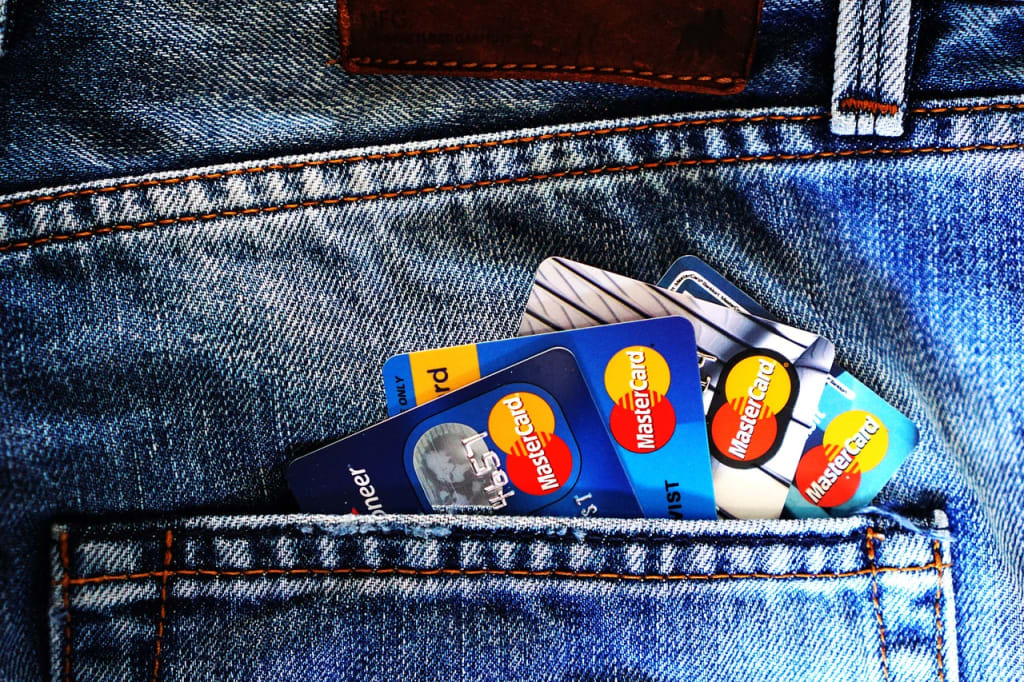What I Learned After 2 Years of Experimenting With My Credit Score
Credit scores age like fine wine!

I got my Social Security Number shortly after migrating to America. I spent the first few years trying to increase the number so I could qualify for good interest rates on credit cards and a car loan.
Along the way, I received a lot of conflicting information from bankers, personal finance blogs, social media, and my family members. Even so, I managed to get my credit score to 780, in four years― just in time to get a loan for my tiny home on wheels.
Since then, I've experimented with my credit score to see what else does and does not affect it. Here's what I've learned over the years.
1. Creditors Do NOT Like U.S. Green Card Holders
Before I became a naturalized citizen, creditors routinely turned me down for everything from credit cards to savings accounts. What was most confusing in these scenarios was that I had a 720-plus credit score. Whenever I saw the question asking me to specify my citizenship status―or lack thereof―I knew a denial was coming.
Every.
Single.
Time.
They even gave me a bad credit loan with a 780 credit score because they said my score was "too new". Too new at five years old with two installment loans (one paid off!), three credit cards, and perfect payment history. The interest rate was a whopping 9.95%. For its good credit scores, the interest rate would have been 4.5%.
One day, I will write a separate article on what it was like to deal with banks and creditors before becoming a naturalized citizen.
2. Lower Utilization Rates Make All the Difference
When I first started building my credit, family members told me not to pay off all my debt. If you have no debt to manage, then creditors don't know how well you handle debt loads, especially large amounts. This can work against you.
While this may be true for installment loans, I find that it's better to pay off your revolving debt. It was a bank manager at an Atlanta Wells Fargo bank who gave me the advice to pay the balance every month. I decided to try it. That's when my credit score shot up from ~720 to 780.
Recently, I decided to try the opposite. I added $2,500 to a credit card and delayed paying to see what would happen. It was interest-free, so there was no rush. My credit score dropped by about 48 points the following day. It went back up when I paid down the balance.
3. Banks Trust You More After You Pay Off Large Balances
I generally use my credit cards to cover big expenses and then pay them back. This is an excellent idea if you have cards with rewards or just want to show banks that you can manage your money and credit well.
In 2021, I had a large balance on my card after paying for a year of insurance and buying mods for my FJ Cruiser. Immediately after paying down the balance, my bank increased my credit limit by $1,000. When I paid off the balance, it doubled my credit limit.
I tried the same thing with another credit card after purchasing a few off-grid mods for my travel trailer. When I paid down the credit balance, they doubled my credit limit. After paying it almost fully off, they tripled my original credit limit.
When the credit limit goes up, your utilization percentage decreases. So, this is an automatic boost to your credit score.
4. You Need an Installment Loan
I have a lot of friends who have never had installment loans and their credit scores reflect that. Even when the credit score says otherwise, lenders will not treat your 700-plus credit score as a true 700-plus score.
For example, when I financed my first car, I had a 720 credit score. I was really proud of my score and thought it would get me a great rate. My rate was good, but it wasn't great. In fact, their credit pull gave me a score of 680!
When I asked the lender about it, he explained, "You've never had an installment loan and you've never handled debt this large before. So, you don't have a true 700 score. Don't worry, though. Now that you have a car loan, you will." He was right!
The week before paying off that car loan, I got a credit-builder loan just to keep an installment loan on my credit history. I then paid off the car loan and applied for the RV loan a month or two later. I have had a "true 700-plus" score since, even if some banks discriminated against me during my green card days.
5. Credit Dings Hurt More for Young Credit Scores
When my credit score was new, a hard pull would drop my score by about 5 points the same day. Then, a month or so later, it would plummet dramatically by about 30-plus points. Within three months or so, it would recover.
When I shared this with Americans my age (late 20s, at the time), they were a little confused. None of them recalled experiencing that at any time, recently. I don't know if it's another discriminatory practice for immigrants, but I'm going to give Uncle Sam and his lenders the benefit of the doubt and say it's for young scores.
If you are a much younger person building credit ― ideally with credit under four years old ― I would love to hear whether you had a similar experience.
6. Getting Added To Older Accounts Does Wonders
I started my American credit journey with a 700-plus credit score. That's because my mother added me to her credit card as soon as I got my SSN. She had a good credit score and perfect payment history. Ironically, even with no other credit in my name, my score jumped to about 20 points higher than hers.
I then got my own credit card and she removed me from her account. The removal did not negatively impact my credit score. In fact, it still shows up on my credit report as my oldest account. It was a wonderful headstart that made all the difference, so I have no idea what it's like to have a low score.
Note that anyone can add you to their credit card, but you don't want to tie up your finances with someone who might bring down your score. The account needs to be in good standing and be kept in good standing. The owner also needs a good or high credit score - at least, better than yours.
You can opt to let them keep the credit card if it makes them feel better. I never took mine from my mom. Instead, she used it on my behalf and I would pay her back. Then, she cut it up when I got my own.
The Bottom Line
Building your credit in America is not for the faint of heart. But, you have to start somewhere, and this is what I've learned over the past two years of playing around with my credit. I am no financial expert, so use my recommendations at your own risk. Good luck!
Did you find this useful? It would be awesome if you subscribed, tipped, or pledged!
About the Creator
Alexis Chateau
I like cats, camping and FJ Cruisers. Follow my adventures at www.alexischateau.com.






Comments
There are no comments for this story
Be the first to respond and start the conversation.